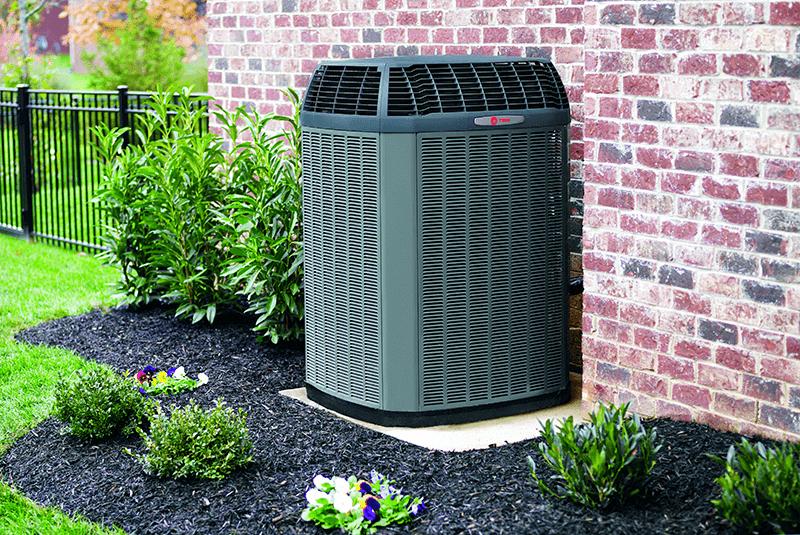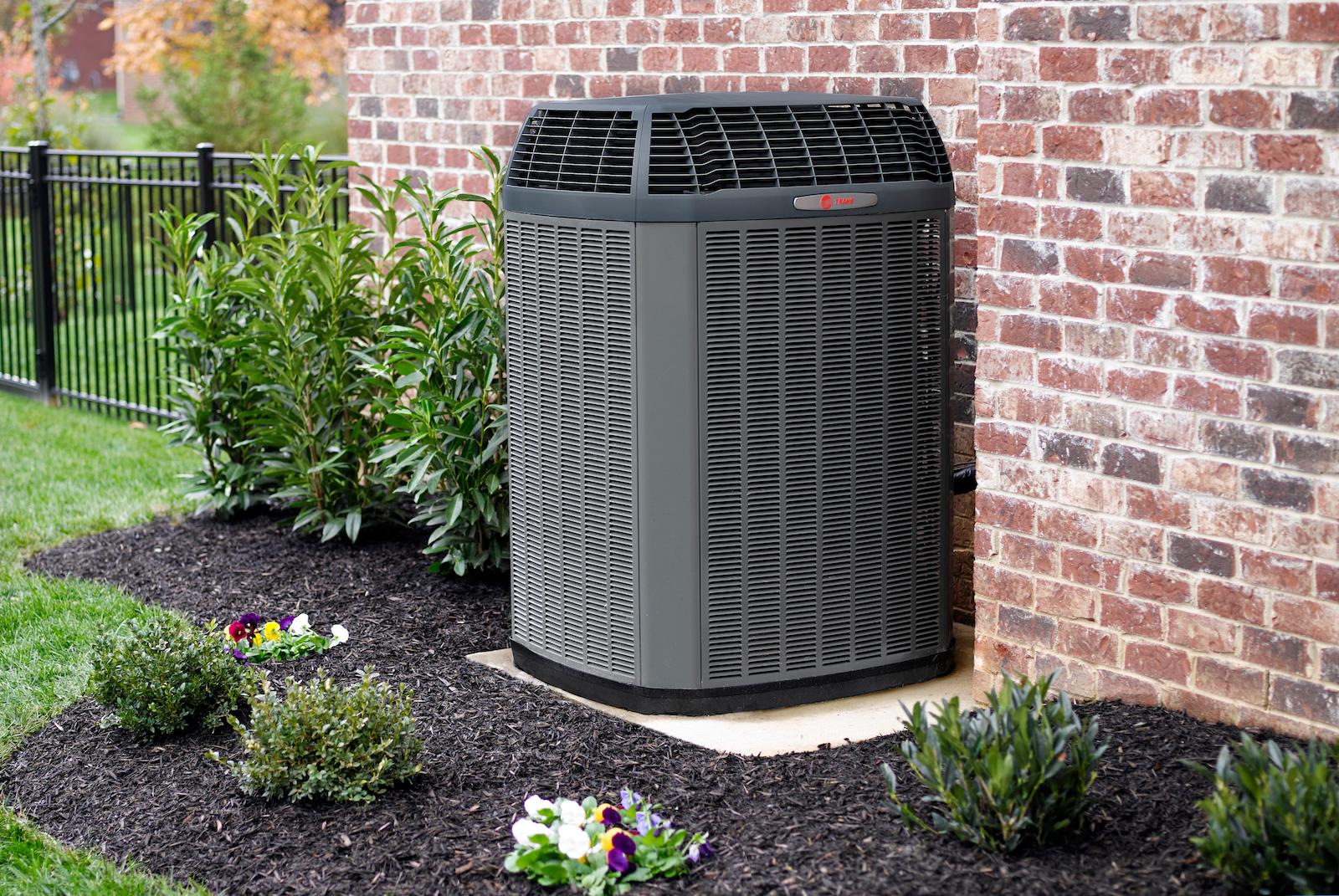What is Electrification and Why is it a Growing Trend?
Learn about electrification and why it’s becoming today’s home-heating trend.
Electrification means replacing equipment powered by fossil fuels with equipment that relies on electricity as their source of energy. Electrification can also refer to cutting down on fossil fueled equipment, if not totally eliminating it, with a system such as a hybrid system. This ‘cleaner’ electricity trend has the potential to significantly reduce carbon dioxide emissions and mitigate the devastating impacts of climate change, while reducing energy usage with products like a heat pump — which can also help reduce operating and maintenance costs for homeowners.
Trane is dedicated to making smarter choices for our environment every day, which is why we are educating consumers about the benefits of electric and hybrid HVAC systems and eco-friendly home comfort solutions, like heat pumps. Learn more about the world’s electrification trend in this article and discover Trane’s efforts toward helping the environment in our Green Guide.
Why is there a conscious shift to electrification?
Electrification has become a movement to shift away from fossil-fuels toward alternative electricity for heating and cooling. Moving towards electrification and away from fossil fuels can benefit health, air quality, the climate, and even result in financial savings.
Renewable energy is now the fastest-growing energy source in the country. While most residential homes still rely on fossil fuels to provide heat, there is growing interest to replace heating systems in the home with all or partially electric units.
As more people become concerned about the negative effects of climate change, electrification is growing in popularity as a solution to reduce carbon emissions. Additionally, advances in technology have made electric-based appliances more appealing to consumers. They are now more affordable and more efficient than ever before.
5 homeowner benefits to electrifying heating
Homeowners are preparing to meet net zero carbon emissions standards in a variety of ways, one way being replacing gas burning furnaces with all-electric heat pumps, or hybrid systems. In a hybrid system, an electric heat pump works to cool the home, and warm in mild to cold temperatures, while the gas furnace kicks in to warm when outdoor temperatures get really cold. Utilizing a hybrid system helps significantly reduce fossil fuel emissions, while still allowing homeowners to get heat from a gas furnace when it’s needed. There are several benefits to investing in an electric or hybrid HVAC system.
1. Electrification can lower your energy bills
Switching your HVAC system from a traditional system to an electric or hybrid one can result in better energy efficiency. Because a heat pump transfers existing heat instead of creating its own heat, it can operate with efficiencies in the range of 80 percent to 99 percent. Heat pumps simply move existing energy, rather than creating their own, which can lower energy bills.
2. Electrification creates healthier homes and better living environments
Fossil fuel burning appliances, like furnaces and gas stoves, emit a wide range of pollutants — and more than 50 percent of American homes have them. Consequently, the air indoors is often more polluted than the outside air. These pollutants include carbon dioxide (CO2), carbon monoxide (CO), sulfur dioxide (SO2), nitrogen oxides (NOx), and methane, which can negatively affect respiratory health, especially for infants, the elderly, people with respiratory illness such as asthma, or cardiovascular disease. All-electric heat pumps and hybrid systems circulate and mix outside air with inside air, resulting in better air quality inside the home. With effective filters and regular maintenance from the experts at Trane, your heat pump based system will provide your home with cleaner, better-smelling air.
3. Electric HVAC products have become more affordable and can help you lower your maintenance costs
Historically, the largest barrier to heat pump and hybrid system installation is the upfront cost of equipment and installation. However, advancing technology that allows manufacturers to produce air-to-air heat pumps at scale are leading to upfront savings, making heat pumps more affordable for more households. Additionally, electric based equipment generally requires less maintenance over its lifetime. Similar to the maintenance of gas vs. electric-powered cars, there are no burners to inspect or clean for safe operation.
4. Electrification gives you more control over your home’s temperature
Heat pumps and hybrid systems provide uniform heating, unlike conventional gas-powered HVAC units which often generate uneven temperatures due to lack of maintenance or incorrect sizing. Heat pumps create a more comfortable feel inside your home, in every room.
5. Electrification can improve operational precision
HVAC electrification is a quieter, more-efficient, and more powerful method in heating and cooling your home. One system for heating and cooling that uses existing heat, instead of generating its own heat, results in less waste and more energy efficiency. They simply move heat from one location to another to achieve maximum home comfort.
Implement electrification in your home
Clearly, heat pumps and hybrid systems are two great ways to implement electrification in your home, as they come with many benefits and can help you become more energy efficient. But, heat pumps aren’t the only way to enjoy the benefits of electrification.
In addition to investing in a new HVAC system, homeowners can also electrify their space by investing in a solar energy system. A photovoltaic system for solar energy converts light directly into electricity, which means they can be used as another method to reduce your home’s carbon footprint. Plus, photovoltaic systems can be easily installed on a balcony or window and begin self-producing energy from sunlight as soon as they’re installed.
Homeowners can also invest in induction cooktops as another means to electrify their homes. These electric cooktops get their power from induction technology, making them more efficient than traditional electric and gas cooktops. On top of that, induction cooktops are better for indoor air quality than gas-powered cooktops, because they don’t release gasses like carbon dioxide and methane into your kitchen. Induction cooktops have even been reported to cook faster and be safer than gas-powered cooktops!
How is electrification happening in new homes and businesses?
Electrification is a global effort with policymakers throughout Europe and the United States introducing legislation that support building decarbonization. This is sometimes called beneficial electrification or strategic electrification, which means replacing direct fossil fuel use with electricity in a way that reduces overall emissions and energy costs.
The United States
In 2015, the United States, along with nearly 200 other countries, signed the Paris Agreement, stating a goal to limit global warming to well below 2, preferably to 1.5 degrees Celsius. To meet this goal, the United States must decrease their emissions by 50 percent in the next ten years and eliminate them completely by 2050. Currently, more than half of American homes rely on gas or other fossil fuels as their primary heating or cooking fuel, which produces carbon dioxide (CO2), carbon monoxide (CO), sulfur dioxide (SO2), nitrogen oxides (NOx), methane, and many other harmful compounds.
Europe
In Germany, the country’s coalition agreement states that by 2025 all newly installed heating systems must operate with at least 65 percent renewable energy. The Netherlands passed a law in 2018 declaring that new homes would be connected to the gas grid.
All-electric construction in new homes
On a national level, all-electric construction is already the standard in several states. In fact, 60 percent of new homes nationwide are all-electric and more than 50 cities across California, including San Jose and Los Angeles, have banned the use of fossil fuels in most new constructions. In New York City, Local Law 97 requires an 80 percent reduction in emissions over the next 30 years for multifamily and commercial buildings. Additionally, Washington and several states on the east coast, including Massachusetts, New York, Rhode Island, and Vermont, are moving in the same direction, and some are offering government-sponsored incentives for replacing fossil fuel-burning furnaces with all-electric heat pumps.
Trane knows the importance of electrification and continued innovation to help the environment, and offers these electric and hybrid systems to help deliver cleaner, healthier, and more eco-friendly heating and cooling.
Continue learning about electrification
Electrification is a trend that is here to stay. As the world seeks new and innovative ways to improve climate control and reduce our carbon footprint, electrification is a crucial step towards a net zero carbon future. Additionally, cost savings, energy efficiencies, and operational precision from HVAC electrification are enticing homeowners to make the switch from gas burning HVAC units to electric heat pumps and 'dual fuel' or hybrid systems. Watch this video to learn about hybrid heat systems.
If you’re interested in learning more about electrification, or are ready to commit to a more energy-efficient HVAC solution in your home, your local HVAC dealer can help. Contact your local independent Trane dealer today to get expert insight on the benefits of electric based heating systems. If you decide electrification is right for you, your dealer can help you find an energy efficient HVAC system catered to your specific needs, plus work with you to install and implement it. Don’t wait to learn more about electrification, start the conversation with a dealer to improve your energy savings and your global footprint.




